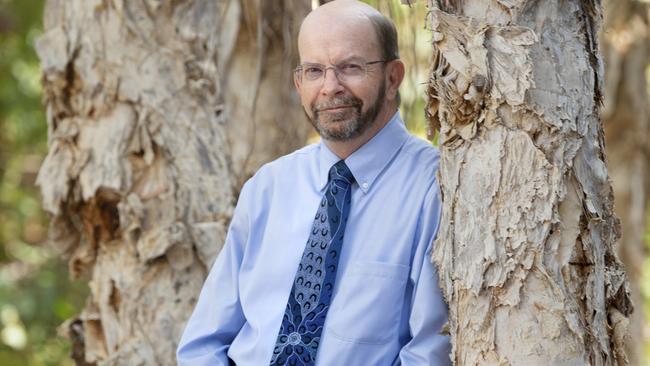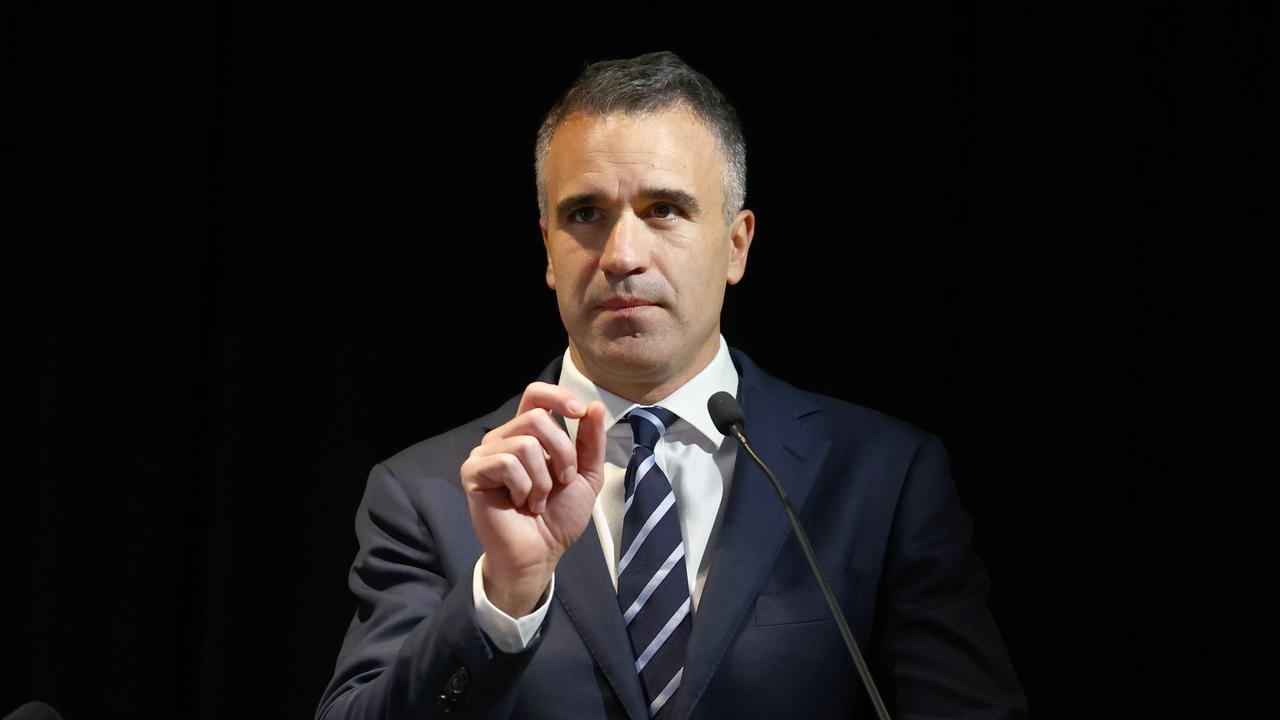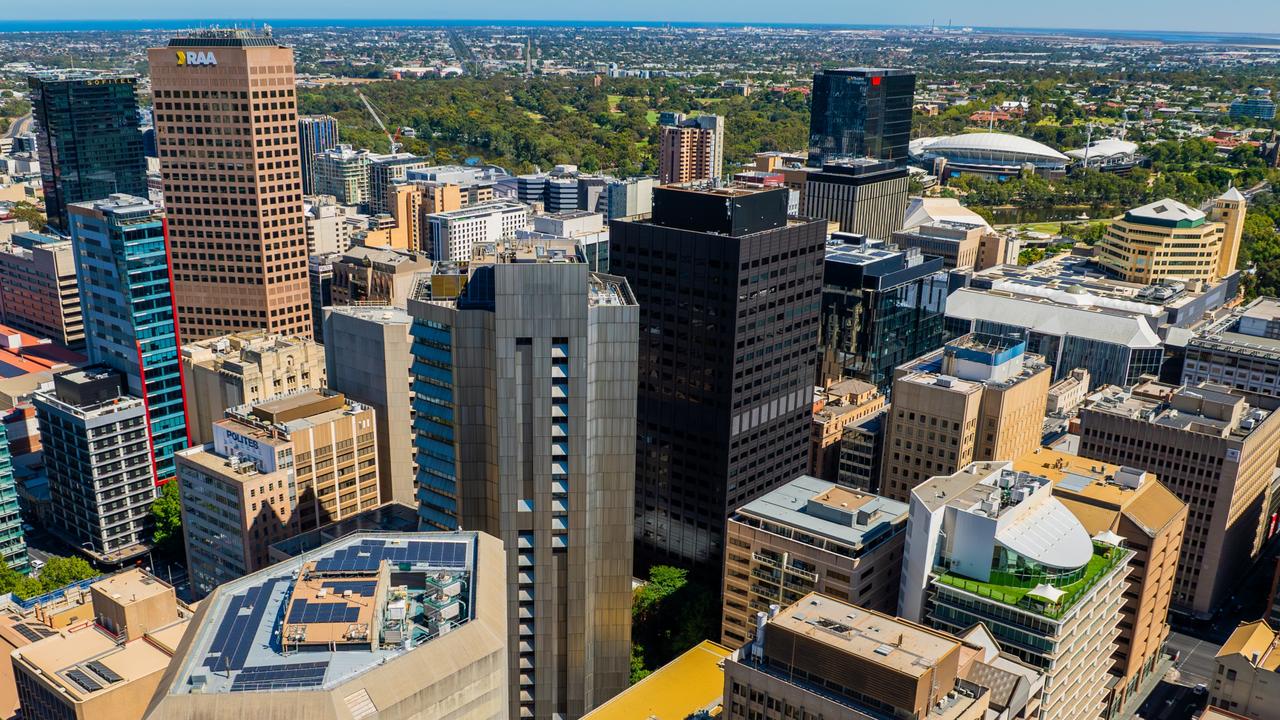Bigger and better: Several projects are aiming to help build healthy regional communities
Several projects are aiming to help create bigger, better, stronger, and healthier regional communities in SA. See what they are.
Future Adelaide
Don't miss out on the headlines from Future Adelaide. Followed categories will be added to My News.
Primary producers are urging a skills plan to ensure a copper mining boom fuelled by the $5bn Northern Water project does not drain workers from the regions.
More than 4200 jobs are forecast to be created by the Northern Water project, which involves a 600km pipeline from a 260-megalitre-per-day desalination plant on Eyre Peninsula to fuel BHP’s far north copper expansion.
Primary Producers SA independent chairman Simon Maddocks, whose group represents grain, livestock, dairy, forestry, horticulture and grape industries, welcomed the potential for population growth in the Upper Spencer Gulf driven by Northern Water and green energy projects.
He also said the pipeline created the potential for intense horticulture projects near Port Augusta, such as Sundrop Farms, which produces fresh fruit and vegetables using renewable energy and hydroponics.

Professor Maddocks, an agricultural and biomedical scientist who was Charles Darwin University’s vice chancellor from 2014-20, said the Northern Water project was “very exciting”.
“The mineral resource opportunities that the state could leverage are very significant, which at this stage of the process, you can understand why it’s worth going through all the detailed assessments to see if they can pull this off,” he said.
“But I think what I would like to see is a broader consideration as to how this integrates with other significant industries like agriculture at a state level. We don’t want to suddenly decimate the labour opportunities in primary industries in the northern parts of the state at the cost of this new development.
“So again, (we need) some good thought about how you can integrate these opportunities for everybody and make sure we build stronger, healthier regional communities.”
BHP and the state government are co-funding feasibility studies into the Northern Water project, which would use renewable energy to power the desalination plant.
BHP wants the huge amounts of water to enable an Olympic Dam copper smelter upgrade, potentially tripling the current capacity from 0.5 megatonnes to 1.7 megatonnes to help create a world-class SA province.

Visiting BHP’s Oak Dam on February 26, Premier Peter Malinauskas forecast the proposed expansion would create “thousands upon thousands of new jobs”.
“What we see is royalties, the revenue coming into the state government. But also, more importantly, a lift in the prosperity of our state more broadly, which is good for families,” he said.
Asked at the time if BHP’s expansion plans could continue without Northern Water, BHP Copper South Australia asset president Anna Wiley said the project had been split into two phases to dramatically reduce reliance on taking water from the Great Artesian Basin.
“But it is incredibly important that we deliver both stage one – to support our existing operations – and stage two, to support our growth activities,” she said.
The world is your oyster
The world is your oyster so long as that oyster is from Smoky Bay.
That’s the belief of Bruce Zippel whose family has been growing oysters in the seaside town on the west coast of the Eyre Peninsula for 30 years.
Zippels Oysters has been selling them to South Australia’s International Seafood and Oysters which in turn supplies them to SkyCity Adelaide.
International Oysters and Seafood is just one of more than 500 SA vendors - including over 200 local food and beverage suppliers - supported by SkyCity.
Others include Penfolds, Rio Coffee and Fleurieu Milk Company.
SkyCity Australia chief operating officer David Christian said SkyCity Adelaide chose to use SA producers wherever possible “not only to ensure the sustainability of our economy but also because we believe in the quality of South Australian produce”.

“In the last financial year (ended 30 June 2023), SkyCity Adelaide spent approximately $20 million on food and beverage items, the bulk of which was spent with local suppliers,” he said, adding: “By supporting local businesses we are nurturing the local supply chain, while also providing an opportunity for local businesses to showcase their products at SkyCity’s world-class resort.”
SkyCity spent in excess of $500,000 on SA seafood, including more than 14,000 dozen oysters, from Coffin Bay and Smoky Bay, last financial year.
The oysters included ones grown by Zippels.
The turnaround from the Smoky Bay’s pristine waters to plate in SkyCity’s The Kitchen is about eight hours.
“We are so lucky with South Australian oysters because they are just at our fingertips,” International Oysters and Seafood Angie Del Medico said of the restaurant’s seafood offerings. “It’s supporting local growers and if they were coming from Sydney we would have to wait for two days to get product to our door.”
Mr Del Medico said Zippels Oysters was “the number one grower, especially out of Smoky Bay”.
Mr Zippel said Mr Del Medico was his family business’s sole middleman and that the loyal partnership spanning decades had “grown their business and ours”.
He said Smoky Bay oysters are grown in “cold, pure, nutrient-rich water” rather than in the mouth of a river. “It’s a very natural type of food,” he said, adding diners enjoying them at restaurants such as The Kitchen could do so knowing they were getting the “best tasting oysters in Australia”.
BHP spends big with local Indigenous suppliers
Mining giant BHP spent more than $54m with local Indigenous suppliers in South Australia in 2022-23 – an increase of more than 120 per cent on the previous financial year.
The boost was part of a commitment made by BHP in its six Reconciliation Action Plan, released in June, to by mid-2027 spend $1.5bn nationwide on procurement from Aboriginal and Torres Strait Islander-owned businesses.
Late last year, BHP signed two contracts with South Australian Indigenous-owned businesses which, combined, were worth upwards of $150m.

Intract Australia was awarded a contract worth $96m over five years to undertake industrial cleaning at Olympic Dam, while Zancott Knight and Platinum Civil Constructs were jointly-awarded an ad-hoc civil contract worth about $60m over five years.
BHP Indigenous procurement manager Jess Jeeves said “in South Australia we have been rapidly growing our spend with Indigenous and Traditional Owner businesses”.
“There is so much talent here in SA, and we see that first-hand in the local businesses we partner with,” she said.
“We’re always looking for opportunities to partner with local and Indigenous-owned businesses, because we know the positive impact it has on regional communities, capacity building, and job creation.”
Intract Australia chief executive John Briggs welcomed BHP’s commitment.
“Our vision when we started Intract was to form a business that would not only open doors for Indigenous training and development, but deliver stable and long-term employment for Indigenous people in contracting services across the mining, civil, and construction industries,” he said.
“This new contract with BHP will increase our site-based workforce to 40 FTE’s and provide further opportunities to provide meaningful employment, create career pathways, and execute development and training for Indigenous people.”
Intract’s team at Olympic Dam is 50 per cent Indigenous and 20 per cent female.





